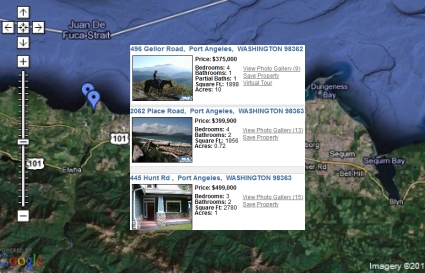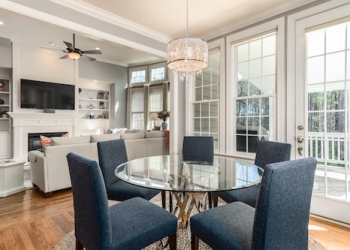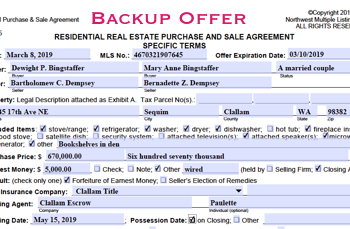The question on how to price a home for sale in this market is perhaps the preeminent question of the day for sellers. Everyone has an opinion, but not everyone gets it right. I’ve examined thousands of homes that have sold and have not sold. I’ve analyzed original listing prices, various price reductions, the timing of those price reductions, the days on market (DOM), and the final selling prices for those that actually sold.
How to Price a Home for Sale
Opinions are often worth what we pay for them. But this question about how to price a home for sale is critical. Get it wrong and you may be stuck with your home for a long long time, and worse, you may actually end up selling it for a lot less than you could have had you priced it right from the beginning. This is not an argument that you should sell your home at a garage sale price. Anyone could do that if they were foolish. This is an argument that there is an intelligent and wise approach on how to price a home for sale. I’ll try to compact this entire article within this one long blog, but for a serious home seller who is grappling with these issues, I strongly urge you to sit down with me so we can have a two hour discussion to unpack these concepts and so I can give you a more detailed proof of these conclusions.
The issue is how to price a home for sale so it will sell within a reasonable period of time. There are two keys: 1.) the original listing price must be right, and 2.) the price must be maintained throughout the term of the listing without irrational price reductions. This doesn’t mean you cannot ever have a price reduction, but you should avoid irrational price reductions. Selling your home is not just about selling it within a reasonable period of time, but selling it for the highest possible price.
How to Price a Home for Sale – The Principles
- The original listing price should not be too high or too low. There is a true FMV (fair market value), and it’s your Realtor’s job to help you identify that range of value and then how to pinpoint the ideal listing price within that range that will also be a sellable price. Here’s where experience is critical. An inexperienced Realtor can cost you time and a lot of money if he/she doesn’t know how to price a home for sale, but most sellers don’t figure that out until after it already has.
- Listen to your Realtor (if he or she is experienced and knows how to do this). Don’t tell your Realtor the price you “want,” and don’t demand a certain price. Yes, it’s your home and your money, but far too many homeowners decide what they want or need, and that has nothing to do with FMV or how to price a home for sale. Many homeowners in this market force their Realtors to walk with them for six months or a year before the homeowners finally get educated in the school of hard knocks and begin to “hear” what their Realtor has been politely saying with a soft voice.
- Price too high in the beginning (because you wrongly think that leaves room to negotiate) and you will a.) miss out on buyers who never look at your home because it is priced just above what they will buy, and b.) pricing too high will turn off a lot of Realtors (they won’t admit this), and your listing will become stale on the market so it just won’t be on Realtors’ radar any more, and c.) end up with a big number of DOM (days on market), and that can actually be a red flag for some buyers.
- Price a home for sale too high in the beginning, and you can actually end up losing money, because it will be on the market for a long time, and if you chase the market down as many sellers have in these past three years, you will keep having price reductions but always be a day late, and you could have sold it at a higher price in the beginning.
- Price a home for sale too high in the beginning, and you may lose negotiating power as buyers will notice that you have had multiple price reductions (and buyers often laugh at how ridiculously high the original listing price was), and they will be looking for a steal–at your expense.
- Identifying the exact listing price is not rocket science, nor is it governed by mathematical precision. Everyone knows that, but there is a psychology of how to price a home for sale within a range of reasonable values. There are price points, also referred to as “break points.” This has more to do with how buyers search for homes online in the MLS than actual appraised values. Price points are more significant at prices below $400,000. As the price moves higher above $400,000, buyers are less inclined to use restrictive search parameters at a maximum price point. This concept is known in economics as the elasticity of demand. For example, if a home is reasonably listed at a true fair market value (FMV) of $1,000,000, buyers will still search from a low of $600,000 or $700,000 to a high that is much more than they can afford to a price of around $1,500,000, knowing all along that they are expecting to find the perfect home around $1,000,000. On the other hand, someone who can afford a home priced around $250,000 will use much more narrow search parameters, such as $175,000 to $275,000. The psychology of pricing (identifying the exact listing price) is a bigger factor in the lower price ranges than in the higher price ranges. If you exceed the upper price range of buyers who are searching for homes like yours simply because you priced high to leave negotiating room, you just lost a potential buyer, and they may never come back. It’s important to know how to price a home for sale so that you do connect with potential buyers from the first day your listing goes on the market.
How to Price a Home for Sale – The Reality
Altos Research, a Mountain View, Calif., company that analyzes data for the real-estate industry, routinely compares initial listing prices around the country with final sales prices. “Sellers generally start out with prices a bit too high, forcing them to later offer discounts to get a deal done,” said Scott Sambucci, Altos’ Vice President of Sales and Analytics.
“The amount of traffic that a listing gets in its first week is five to seven times what it gets in its ensuing weeks,” says Glenn Kelman, the CEO of Redfin, an online brokerage and listings site. “Let’s say you lower the price (later). No one will notice. You really are broadcasting that discount to a much smaller audience of buyers and will have the perception it is damaged goods.”
Every homeowner should have their listing agent explain how to price a home for sale.
Last Updated on October 17, 2011 by Chuck Marunde
































